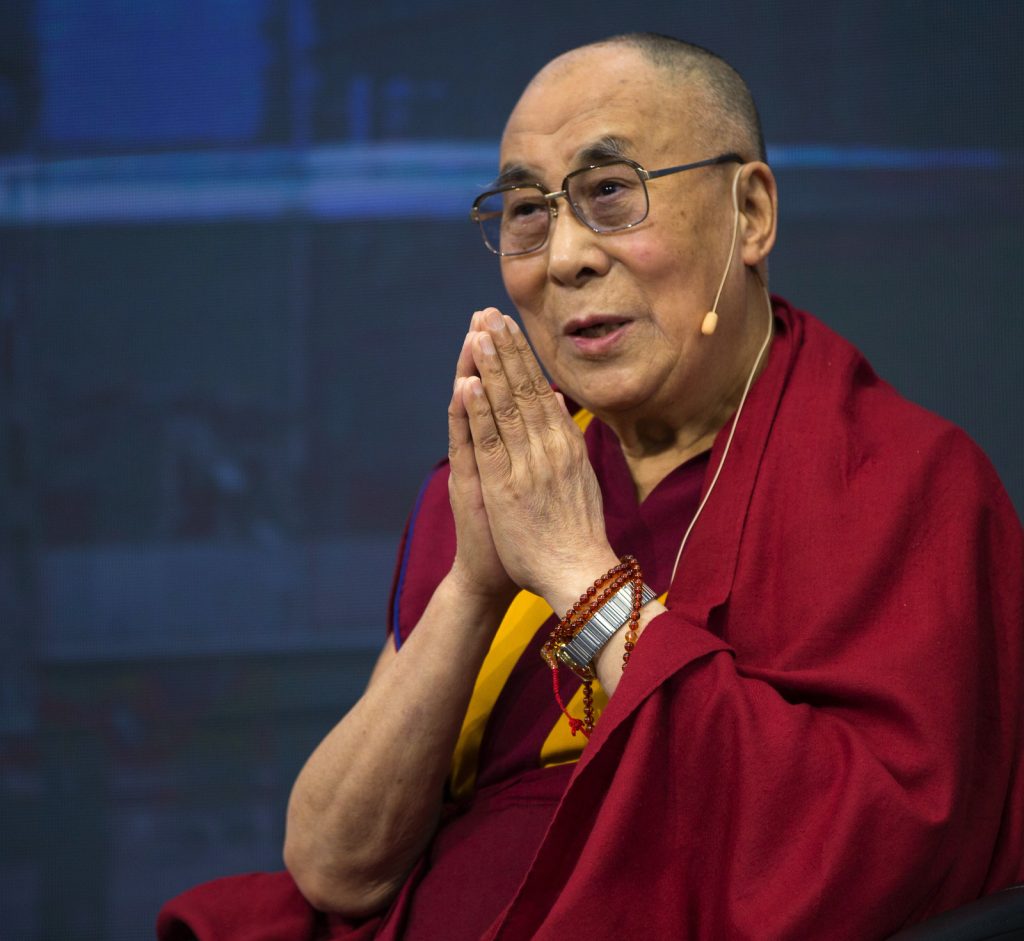In Tricycle’s first issue, writer Spalding Gray interviewed the Dalai Lama, covering subjects like doubt, fear, and dreaming. Since then, the magazine has featured a number of teachings from His Holiness that range from introductions to the Buddha’s teachings to advice for countering stress and depression. In honor of his 88th birthday today, here’s a collection of the Dalai Lama’s teachings from Tricycle’s archives.
***
A Brief Teaching on the Purpose of Meditation from The Dalai Lama’s Little Book of Wisdom
“Buddhism explains that our normal state of mind is such that our thoughts and emotions are wild and unruly, and since we lack the mental discipline needed to tame them, we are powerless to control them. As a result, they control us. And thoughts and emotions, in their turn, tend to be controlled by our negative impulses rather than our positive ones. We need to reverse this cycle.”
An Introduction to the Buddha’s Teachings and Their Place in Tibet
“Buddhism has flourished for centuries in many countries, but it was in Tibet that all three paths, the Shravakayana, Mahayana, and Vajrayana, were preserved completely. . . Moreover, Tibetan scholars never ignored the practice aspect, and experienced practitioners did not neglect to study. This seems to me a very good way of doing things.”
Why the Inner Enemy Is the Most Dangerous One
“One of the best human qualities is our intelligence, which enables us to judge what is wholesome and what is unwholesome, what is beneficial and what is harmful. Negative thoughts, such as anger and strong attachment, destroy this special human quality; this is indeed very sad. . .A person gripped by such states of mind and emotion is like a blind person, who cannot see where he is going. Yet we neglect to challenge these negative thoughts and emotions that lead to near insanity. On the contrary, we often nurture and reinforce them! By doing so we are, in fact, making ourselves prey to their destructive power. When you reflect along these lines, you will realize that our true enemy is not outside ourselves.”
A Brief Teaching on Equality
“It’s true that in specific circumstances where you have the ability to alleviate the suffering of another person or to protect another person from suffering, there is, in that sense, an inequality. One person has a capacity that the other person does not. But there is no such sense of inequality, no feeling of superiority, in the actual mode in which compassion views the other sentient being. . . The other being for whom I feel compassion is just like me.”
Advice for Countering Stress and Depression
“If the situation or problem is such that it can be remedied, then there is no need to worry about it. In other words, if there is a solution or a way out of the difficulty, you do not need to be overwhelmed by it. The appropriate action is to seek its solution. Then it is clearly more sensible to spend your energy focusing on the solution rather than worrying about the problem. Alternatively, if there is no solution, no possibility of resolution, then there is also no point in being worried about it, because you cannot do anything about it anyway. In that case, the sooner you accept this fact, the easier it will be for you.”
This article was originally published on July 6, 2021
Thank you for subscribing to Tricycle! As a nonprofit, we depend on readers like you to keep Buddhist teachings and practices widely available.
